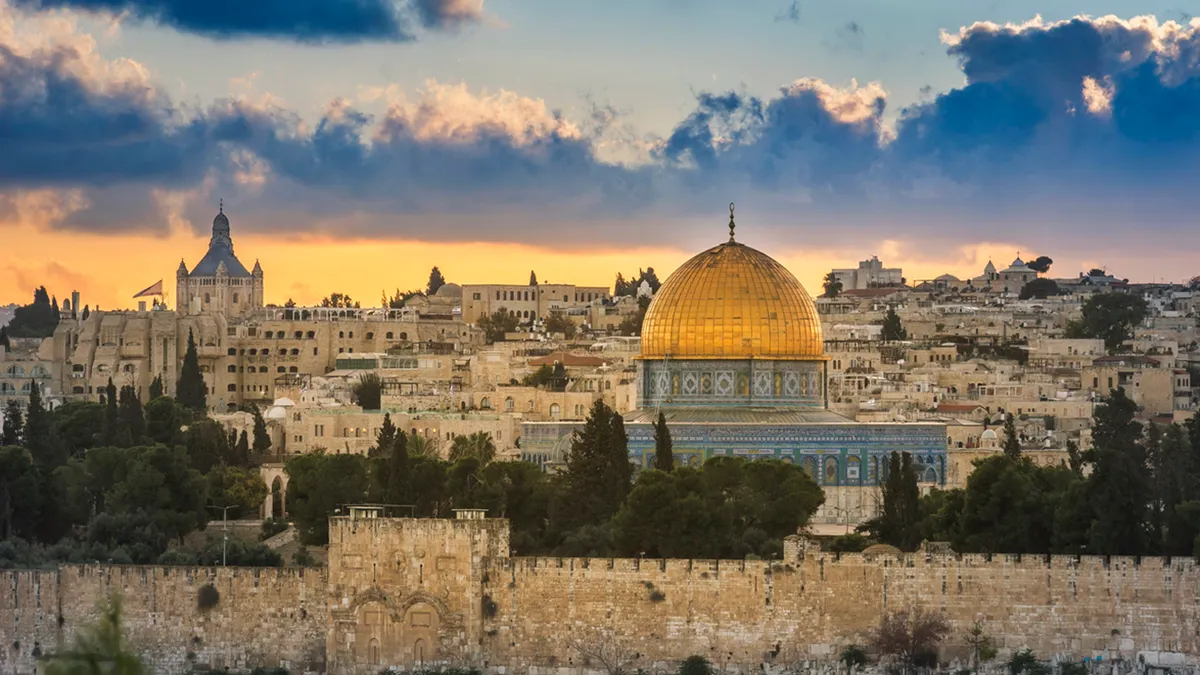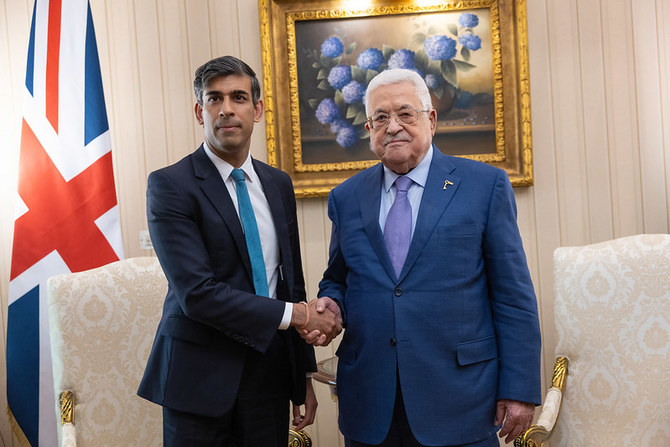Sunday Morning / October 22, 2023
Twinkling on the Mediterranean Sea lies the State of Palestine. Their roughly 5+ million people are entrenched in the Israeli-Hamas War, and since October 7 have turned the world’s attention to hospital bombings; 200+ hostages; 5,700+ civilian casualties; and a new migrant crisis of 1.5 million Israelis and Palestinians. A cautionary tale, to belligerents the conflict is a crusade; to politicians a conundrum; and for the faithful who’ve walked this land from the advent of time a sign.
While internet headlines beg search and algorithms for context, beginning a story in the dispensation of the fullness of times is to start a book at the end, where plot and point of view are distorted by sequence.
Israel and Palestine claim Jerusalem as their capital. Though neither is widely recognized internationally, it is where this particular story begins. To whom it belongs and why is the premise; what has and shall transpire is in the plot; and when it will be delivered and to whom were laid forth long ago in ancient texts and promises.
In a place where faith and reason collide, the views of Jerusalem, and specifically the Temple Mount, as transcribed in ancient texts, aren’t merely unabridged memoirs of heaven and earth. They represent an LLC, place of worship, land grant, deeded property and private residence of God. Considered the bloodiest and deadliest attack on the Jews since the Holocaust, Operation Al-Aqsa Flood has been called a prescient sign of the times.
Holy City
The name “Jerusalem," variously etymologized "foundation or cornerstone of Shalem," was the original tutelary deity of the Bronze Age city. “Shalom” in Hebrew and “salem” in Arabic, for both Jerusalem is “the city of peace” and since 3000 BCE has been ruled by 33 separate and distinct nation states.
The Holy City is sacred to the Abrahamic religions of Judaism, Christianity and Islam. The Temple Mount intrinsic to their culture, religion, and way of life. Each ruling nation has challenged all three, exiling and extinguishing both Jews and Arabs from their respective kingdoms.
Today, the Abrahamic religions are represented by 4+ billion people across the globe, precisely half of the world’s 8.1 billion population in 2023. Their destinies coincide in Jerusalem, and in God’s promise to rescue, deliver and restore their holy city.

Temple Mount
In A Peace to End All Peace, David Fromkin observes that the conflict between Christian and Muslim kingdoms represent the longest military campaigns in world history. The longest, Roconuista, comes in at 774 years; whilst the 1967 Arab–Israeli War was decided in just 6 days. They first commenced shortly after the appearance of Jesus of Nazareth in 718AD, and continue to the present day with the Israeli-Hamas War.
The Israeli–Palestinian conflict, in particular, is among the world's longest continuing conflicts. It begins when the Allies of World War I recreate the geography and politics of the Middle East. Fromkin observes:
The hostilities between Arabs and Israelis are rooted in the region's political inheritance: the arrangements, unities, and divisions imposed by the Allies after the First World War.
The Ottoman Turks governed Jerusalem for 300 years until their defeat 1918, after which the Allied Powers of World War I began to carve up and colonize their territories.
However, during the war a series of 10 letters were exchanged between Hussein bin Ali, Sharif of Mecca, and Lieutenant Colonel Sir Henry McMahon, British High Commissioner to Egypt. In sum, the McMahon–Hussein Correspondences obliged the United Kingdom “to recognize Arab independence in a large region after the war in exchange for the Sharif of Mecca launching the Arab Revolt against the Ottoman Empire.”
Whilst there was some military value in the Arab manpower and local knowledge alongside the British Army, the primary reason for the arrangement was to counteract the Ottoman declaration of jihad "holy war" against the Allies, and to maintain control over the 70 million Muslims in British India. Effectively averting a revolt or mutiny within the Indian Army.
But when the Balfour Declaration came along a year later — a public statement issued by the British government in 1917 declaring the establishment of a national home for the Jewish people in Palestine — a modern conflict between Zionism + Arab Nationalism was ignited.
Sectarian conflict between Palestinian Jews and Arabs created by the British Mandate triggered a full-scale Palestinian Civil War in 1947, and has resulted in a 75 year phenomenon of political tension and military conflict between various Arab neighbors and Israel.
The strategic implications of Operation Al-Aqsa Flood on October 7 was designed to defeat the Zionist occupation and establishment; challenge Israel’s national security doctrine of deterrence; and lure Hezbollah into a two-front war to reestablish the centrality of Al–Aqsa Mosque and Jerusalem in the Palestinian, Arab and Muslim conscience.
That came to pass when Iran backed Hezbollah claimed responsibility for firing anti-tank missiles from the Lebanese border towards Israel on Saturday.
Hezbollah’s deputy leader Sheikh Naim Kassem has vowed that "Israel will pay a high price whenever it starts a ground offensive in the Gaza Strip," and that his militant group based in Lebanon is already “in the heart of the battle.”

Rishi Sunak / Mahmoud Abbas in Cairo
Simultaneously, 100,000 people were demonstrating in central London on Saturday, marching through the British capital chanting “Free Palestine” while Prime Minister Rishi Sunak was toeing the party line. “To our Jewish community in the UK: I know you are hurting and reeling from these vile terrorist acts….We’ve seen intimidating behavior and shameful antisemitism online and on our streets with attempts to stir up tensions.” Sunak continues:
To this I say not here. Not in Britain. Not in our country. Not in this century. We will do everything we possibly can to protect Jewish people in our country, and if anything is standing in the way of keeping the Jewish community safe — we’ll fix it.
While the Abraham Accords called for “efforts to promote interfaith and intercultural dialogue to advance a culture of peace among the three Abrahamic religions and all humanity,” the approach colossally failed Palestinians on the matters of Israeli occupation of the West Bank; apartheid policies; and its blockade of Gaza which the Human Rights Watch calls an “open-air prison.” And therein lies the axis of coalitions and future of geopolitics.
Sunak on Friday held talks in Cairo with the leader of the Palestinian Authority, Mahmoud Abbas, where the two condemned Hamas but agreed, in a spectacular act of diplomacy, on a two-state solution.
Perhaps protecting the diaspora of Jews in the United Kingdom, offset by advocacy for the Arabs in the State of Palestine, is best worn by a British prime minister in Muslim threads. In any case, gathering Israel will require opening not 1 but each and all of the 12 gates of Al-Aqsa.








